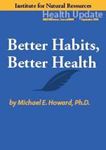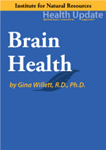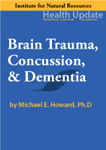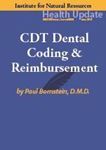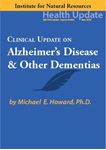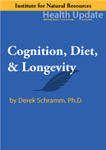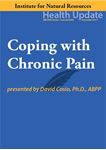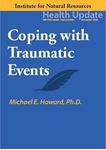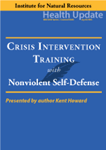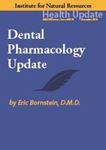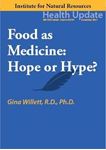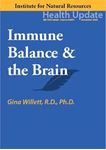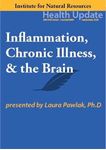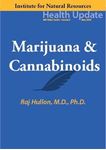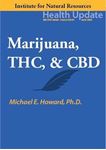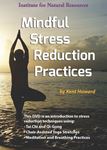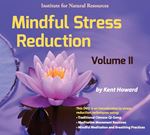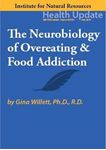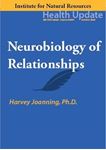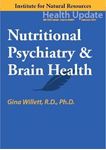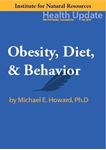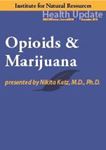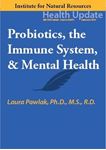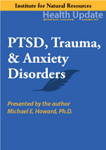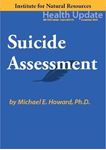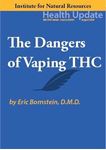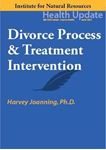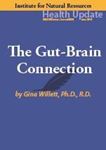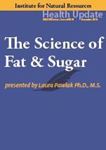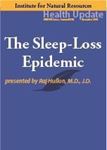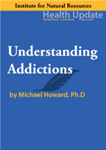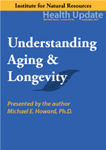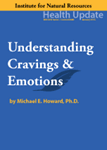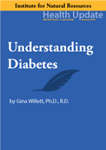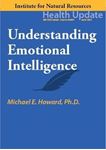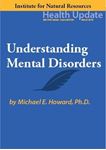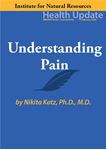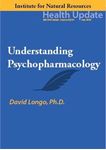You have no items in your shopping cart.
DVD only (No CE)
Better Habits, Better Health - DVD only *NO CE - 6 hours
Describes how personality types, core beliefs, and behavioral habits affect chronic illness. Discusses the most common chronic illnesses and the key factors in prevention and management. Explains how stress, anxiety, and depression influence chronic illnesses. Describes practical behavioral habits for coping with disabling chronic conditions like pain, cancer, arthritis, and other diseases. Lists ways to help patients develop healthier habits in terms of nutrition, activity, preventive medical and dental care, and emotional well-being. Describes how the information in this course can be utilized to improve patient care and patient outcomes. Describes, for this course, the implications for dentistry, mental health, and other health professions.
$69.00
Brain Health - DVD only *NO CE - 6 hours
The course “Brain Health: Mood, Metabolism and Cognition” provides an overview of key factors that can improve mental health, as well as to ensure cognitive health. This course includes a discussion of: (1) the importance of stress management, (2) physical activity, (3) weight management, (4) early diagnosis and proper management of diabetes and pre-diabetes, (5) key dietary factors to “defend the castle”, including the concept of “nutritional psychiatry”, (6) ways to improve gut health so as to improve brain health, (7) proper sleep hygiene, (8) the importance of oral health, and, finally, (9) how to incorporate some of the characteristics of our ancestors’ lifestyle (i.e., address our modern “Paleo-Deficit disorder).
Health professionals who complete this course will gain a much fuller understanding of the factors that impact brain health, as well as a range of techniques to help themselves, and their patients/clients, improve/preserve cognitive function and ensure positive emotional and mental health.
$69.00
Brain Trauma, Concussion, & Dementia - DVD only *NO CE - 6 hours
Describes the brain structures and functions that are most vulnerable to trauma. Outlines the major steps in assessing patients with brain trauma and predicting disability. Discusses key clinical features of concussions, penetrating head injuries, and blast injuries. Describes the relationship between brain trauma and dementing illness such as Alzheimer’s and chronic traumatic encephalopathy. Outlines the rehabilitation strategies most likely to improve outcomes in patients with brain trauma. Discusses the practical steps to prevent brain trauma from motor vehicle accidents, falls, and sports. Describes how the information in this course can be utilized to improve patient care and patient outcomes. Describes for this course, the implications for nursing, dentistry, mental health, and other health professions.
$69.00
CDT Dental Coding & Reimbursement - DVD only *NO CE - 6 hours
Discusses strategies to protect your practice from litigation and malpractice. Determines the best practices in documentation. Evaluates the new CDT codes to prevent billing fraud and to maximize profit. Identifies what you need to be aware of to maximize billing. Examines the intricacies of the dental insurance world. Discusses how your office is being watched and how to avoid billing fraud.
$149.00
Clinical Update on Alzheimer's Disease & Other Dementias - DVD Only *NO CE - 6 hours
Describes the differences between normal and abnormal brain aging. Lists measures to preserve brain function and reduce the risk for cognitive decline. Defines dementia and describe common dementia syndromes. Describes the major characteristics of and treatments for Alzheimer’s disease. Lists medications and common clinical conditions that can cause dementia-like symptoms. Describes how the information in this course can be utilized to improve patient care and patient outcomes. Describes for this course, the implications for nursing, dentistry, mental health, and other health care professions.
$69.00
Cognition, Diet, & Longevity - DVD only *NO CE - 6 hours
Explains how personality types, habits, and beliefs inuences behavior and the risk for disease. Discusses how mental disorders such as anxiety and depression aect physical health. Describes how addiction to sweet, fatty, and salty foods promotes obesity. Lists the diets shown to enhance longevity and prevent disease. Lists the causes of improved life expectancy in the United States. Explains how patients can delay or survive the top ten causes of morbidity and mortality. Describes, how the information in this course can be utilized to improve patient care and patient outcomes. Describes, for this course, the implications for dentistry, mental health, nursing, and other health-care professions.
$69.00
Coping with Chronic Pain: Presented by David Cosio - DVD only *NO CE - 6 hours
Explains the current state of pain management in the United States. Describes the multidisciplinary approach to pain management. Reviews the 23 different pain management modalities currently available. Describes steps to create a comprehensive pain management plan. Lists the five key coping skills for helping chronic pain patients. Discusses treatment options for chronic dental and facial pain. Describes how the information in this course can be utilized to improve patient care and patient outcomes. Describes the implications for dentistry, mental health, and other health professions.
$69.00
Coping with Traumatic Events - DVD only *NO CE - 6 hours
Identifies the major causes and pathways of the stress response. Describes how worry, traumatic events, threats, and crises can cause anxiety and trauma-related disorders. Lists the characteristics of acute stress disorder and the principles of crisis intervention. Identifies the symptoms, subtypes, and treatments of PTSD (post-traumatic stress disorder). Discusses effective stress management strategies including resilience building, mindfulness, relaxation, cognitive behavioral therapy, and medications. Lists the methods of managing compassion fatigue in caregivers and health care professionals. Describes how the information in this course can be utilized to improve patient care outcomes across disciplines. Describes, for this course, the implications for nursing, dentistry, mental health, and other health professionals and improve patient treatment co-morbidity outcomes for occupational and physical therapy.
$69.00
Crisis Intervention Training with Nonviolent Self-Defense - DVD only *NO CE - 2 hours
In this DVD presentation, Master Instructor Kent Howard will guide the viewer through basic methods of self-protection, retreat, and escape. He will demonstrate skills to deal with seizures and strikes. Finally, he will describe how to engage, control, and restrain an angry or aggressive client. This course will satisfy 2 contact hours in Category 5 for patient safety for pharmacist and pharmacy technician credits.
After completing this course, participants will be able to 1) describe strategies for self-protection, retreat, and escape, 2) demonstrate core skills for defense against seizures and strikes, 3) describe how to engage and gain control over a client who is acting out; and 4) explain the role of self-defense and humane care in crisis intervention.
After completing this course, participants will be able to 1) describe strategies for self-protection, retreat, and escape, 2) demonstrate core skills for defense against seizures and strikes, 3) describe how to engage and gain control over a client who is acting out; and 4) explain the role of self-defense and humane care in crisis intervention.
$39.00
Dental Pharmacology Update - DVD only *NO CE - 6 hours
Describes the difference among (a) Acetaminophen, (b) Naproxen, (c) Ibuprofen, and (d) Aspirin. Explains the different dosages, precautions, interactions, and contraindications for each NSAID (nonsteroidal anti-inflammatory drug). Describes how opioid analgesics differ from NSAIDS and explain opioid receptors and opioid metabolism. Describes the risks and abuse and addiction associated with opioid medication and identify patients at risk for substance-use disorders. Discusses the medical and pharmacological similarities and differences among Codeine, Hydrocodone (Vicodin), and Oxycodone (Percocet). Explains each of the above opioids’ dosages, precautions, interactions, and contraindications. Counsels patients concerning the side effects, addictive nature, proper storage, and disposal of opioid medications. Defines pain-management principles with NSAIDS, opioids, and combined NSAID/opioid medications. Describes opioid antagonists and overdose-prevention treatments. Practices effective pain management. Defines and describes the signs and symptoms of opioid-use disorders. Defines and describes anxiolytics used in dentistry, such as Ambien, Ativan, Halcion, Valium, Xanax - along with pharmacological effects, adverse reactions, and contraindications. Defines and describe muscle relaxants used in dentistry such as Flexeril and Klonopin - along with pharmacological effects, adverse reactions, and contraindications. Explains the modern issues of multi-drug resistant infections in dentistry and describe new thinking in antibiotic regimens to combat these resistant pathogens.
$79.00
Food as Medicine - DVD only *NO CE - 4 Hours
Identifies food constituents (macro and micro-nutrients, phytonutrients) that can help prevent or treat disease. Describes how modern processed foods can adversely impact health. Outlines the major benefits of healthy eating related to immune function, aging, gastrointestinal (GI) functions, and cognition. Explains the role of nutrigenomics and personalized nutrition in optimizing gene activity or expression. Describes how nutrition myths, pseudoscience, and an obsession with “clean eating” can compromise health and lead to orthorexia. Outlines how the information in this course can be used to improve patient care outcomes. Describes, based on the information presented, the implications for dentistry, mental health, pharmacy, nursing, dentistry, occupational, and physical therapy, and other health professionals.
$49.00
Immune Balance & the Brain - DVD only *NO CE - 6 hours
Describes components of the immune system and principles of normal immune function. Reviews the clinical features of common autoimmune, allergic and inflammatory conditions. Explains potential immune factors that may contribute to depression and other psychiatric disorders. Describes the link between poor oral health and immune dysfunction. Lists the dietary, pharmacologic, and lifestyle changes that may help balance immune function. Describes how the information in this course can be utilized to improve patient care and patient outcomes. Describes, for this course, the implications for dentistry, mental health, nursing, and other healthcare professions.
$69.00
Inflammation, Chronic Illness, & the Brain - DVD only *NO CE - 6 hours
Identifies clinical signs & symptoms of inflammation. Describes the connections between inflammatory processes and chronic illness. Describes the role of inflammation in specific illnesses such as heart disease, COPD, diabetes, arthritis, and dementia. Lists practical strategies to reduce levels of inflammation in clinical practice. Explains the rationale for good dental prophylaxis and skin care in patients with chronic illness. Describes how the information in this course can be utilized to improve patient care and patient outcomes. Describes, for this course, the implications for dentistry, mental health, and other health professions.
$69.00
Marijuana & Cannabinoids - DVD only *NO CE - 6 hours
Outlines and describe the difference between Marijuana, Synthetic Marijuana, Hemp and various marijuana alternatives. Identifies the difference between CBD, THC and Synthetic Cannabinoids. Reviews the current “Legal Status” of Cannabis and Synthetic Cannabinoids in America. Describes the troublesome new statistics concerning addiction and the increase in “Youth Vaping” of THC and CBD. Explains human Opioid Receptors, Opioid analgesia and compare this to the Human Endocannabinoid system. Reviews the real evidence (or lack thereof) for pain control and analgesia with THC, CBD, and marijuana alternatives. Lists the difference between THC Oil, Marijuana Oil, Cannabis Oil, Hash Oil, CBD Oil, and Hemp Oil. Reviews the critical Adverse Drug Reactions that occur with THC and CBD. Describes how the information in this course can be utilized to improve patient care and patient outcomes. Describes, for this course, the implications for dentistry, mental health, nursing, and other healthcare professions.
$69.00
Marijuana, THC, & CBD - DVD only *NO CE - 6 hours
Describes the pharmacologic differences among cannabis (marijuana), THC and cannabinoids. Discusses the major legal issues surrounding THC at the Federal and State levels. Lists the physiologic and pathologic effects of marijuana (THC) including effects of long term use and potential harm to the adolescent brain. Describes FDA-approved uses for medical marijuana and possible clinical uses for cannabis in chronic pain patients. Explains the known dangers of vaping marijuana and development of EVALI (Lung Injury Due to E-Cigarettes and Vaping). Recognizes the signs and symptoms of acute marijuana intoxication. Discusses the myths and realities surrounding the explosion of CBD products across the country. Describes how the information in this course can be utilized to improve patient care and patient outcomes. Describes, for this course, the implications for dentistry, mental health, nursing, and other healthcare professions.
$69.00
Mindful Stress Reduction Practices - DVD
The DVD presents various mindful stress reduction techniques such as breathing exercises, meditation practices, stretching techniques, and meditative movement routines, all designed to lower stress levels, reduce built up muscle tension, and help elicit the relaxation response.
$39.00
Mindful Stress Reduction Volume II - DVD
In this video, wellness coach and master teacher Kent Howard introduces breathing exercises, mindfulness-based meditations, and meditative movement routines designed to promote relaxation, enhance physical well-being, improve emotional balance, and optimize wellness.
$39.00
Mindfulness & Stress Reduction - DVD Only *NO CE - 6 hours
Cites various effects of stress on the nervous system, including sympathetic arousal and the adrenal response. Describes the role of chronic stress in physical and psychological illnesses. Outlines mind-body therapies suitable for integrative health practices. Demonstrates the practical techniques related to mindful relaxation. Discusses the role of meditation and breathing techniques in stress reduction programs. Demonstrates simple exercises for use in alleviating stress symptoms. Describes how the Relaxation Response engages the parasympathetic nervous system. Describes strategies for integrating mindful stress-reduction methods into nursing, mental health, dentistry and other clinical practices.
$69.00
Neurobiology of Overeating & Food Addiction - DVD only *NO CE - 6 hours
Outlines the homeostatic and hedonic pathways that interact to regulate food consumption. Describes the neurobiology of overeating, altered brain structures and changes in chemical signaling that contribute to impaired food regulation. Outlines the evidence that supports the concept of food addiction, as well as the opposing view. Lists factors that contribute to overeating: genetics, epigenetics, hyperpalatable foods, gut dysbiosis, stress, maternal and early life factors, circadian disruptions, etc. Outlines potential approaches to control overeating: abstinence models, dietary modifications, cognitive therapies, neuromodulation, microbial manipulation and bariatric surgery. Describes how the information in this course can be utilized across the disciplines to improve patient care and outcomes. Describes, for this course, the implications for dentistry, mental health, nursing, pharmacy, occupational and physical therapy treatment goals, and other healthcare professions.
$69.00
Neurobiology of Relationships - DVD only *NO CE - 6 hours
Over the last 20 years, advances in neuroimaging have allowed scientists to directly observe brain functions while humans are engaging in behavior. This research has led to an improved understanding of how our brain functions when we are interacting with our mates and children. This workshop focuses on how to use this emerging knowledge of brain function to improve how we conduct therapy with individuals in intimate relationships.
$69.00
Nutrition & Healthy Lifespan - DVD only *NO CE - 4 Hours
Describes the role of genetics vs. lifestyle in the aging process. Explains how key hallmarks of aging can be influenced by eating healthy foods in a healthy manner. Outlines the research supporting the benefits of caloric restriction, intermittent fasting, and time-restricted eating. Describes the optimal amounts, types, and distribution of protein intake to maintain muscle health and functional independence. Outlines the most common nutritional deficiencies in older patients and the role of obesity in accelerating the aging process. Discusses the role of prebiotics, probiotics, and gastro-intestinal health in older patients. Describes how this course would help professionals in dietetic, nursing, mental health, pharmacy, dentistry, occupational therapy, and physical therapy to improve patient care outcomes.
$49.00
Nutritional Psychiatry & Brain Health - DVD only *NO CE - 4 hours
Lists key nutritional factors that are essential for a healthy brain throughout the lifespan. Explains how inflammation can contribute to depression and other psychiatric disorders. Describes how poor gut health and an altered gut microbiota could lead to neuropsychiatric and neurodegenerative consequences. Outlines the components of an anti-inflammatory diet to improve mental and cognitive health, as well as the strength of evidence to support the use of dietary supplements. Explains the link between stress and anxiety and food intake. Describes how the information in this course can be utilized to improve patient care and patient outcomes.
$49.00
Obesity, Diet, & Behavior - DVD only *NO CE - 6 hours
Explains the complex nature of body fat and why both too much and too little are deleterious to health. Describes how genes, eating behavior, macronutrients, physiology, microorganisms, and the environment interact to produce obesity. Outlines how the food industry’s production of hyperpalatable foods fuels sweet, fat, and salt addiction and the obesity epidemic. Identifies the most effective diets that could produce long-lasting results in weight loss. Explains strategies for maintaining successful weight loss, managing food cravings, and treating emotional overeating. Identifies the relative effectiveness of diet, exercise, medications, and surgery in maintaining weight loss. Describes how the information in this course can be utilized to improve patient care and patient outcomes. Describes, for this course, the implications for dentistry, mental health, nursing, and other healthcare professions.
$69.00
Opioids & Marijuana - DVD only *NO CE - 6 hours
Outlines the neurologic, genetic, and social mechanisms of opioid abuse, especially in relation to the nationwide, opioid health emergency. Lists diagnostic signs and psychological “red flags” common in opioid abuse and opioid overdose. Reviews the current guidelines for the use of opioids in patients with acute and chronic pain. Lists the parameters of opioid use and abuse to be documented in all clinical, dental, and health care settings. Explains opioid replacement therapy (e.g., methadone, buprenorphine) and the use of opioid antagonists in acute overdose. Describes the risks and toxicities (inclusive of accidental overdose in first responders and healthcare professionals) of fentanyl and derivatives, as well as over-the-counter abusable drugs. Describes the short-term and long-term neurologic, psychosocial, and metabolic effects of cannabis (marijuana) use and outline these effects in relation to opioid abuse, pain inhibition, and the modulation of neurotransmitters. Lists the subterfuges aimed to prevent the CDC (Center for Disease Control and Prevention)-mandated detection of drugs of abuse and the methods for reduction of false positives and false negatives. Describes how the information in this course can be utilized to improve patient care and patient outcomes. Describes, for this course, the implications for dentistry, mental health, nursing, and other healthcare professions.
$69.00
Probiotics, Food, & the Immune System - DVD only *NO CE - 6 hours
Identifies the human microbiota, including beneficial bacteria (probiotics). Describes the effects of probiotics with regard to the digestive, nervous, and immune systems. Lists the pro- and anti-inflammatory influences, including those influences related to such substances as essential lipids and amino acids. Compares and contrast approaches used to reduce inflammation. Recognizes ways to prevent disease and disability in the aging population. Identifies developments in dental health, including the use of probiotics to suppress S. mutans. Discusses the role of immune system modulators with regards to cariogenic bacteria and regeneration of
dentin. Describes how the information in this course can be utilized to improve patient care and patient outcomes.
$69.00
Probiotics, the Immune System, & Mental Health - DVD only *NO CE - 6 hours
Identifies the human microbiota, including beneficial bacteria (probiotics) and beneficial fiber (prebiotics).
Describes the effects of human microbiota with regard to the digestive, immune and mental health conditions. Lists the pro- and anti-inflammatory influences, including those of essential lipids and amino acids. Identifies interventions to address chronic inflammation, pathological appetite, and mental health manifestations of microbiome imbalance. Identifies mental health consequences of gastrointestinal pathobionts as related to various mental disorders. Discusses the role of the immune system with regard to cariogenic bacteria and regeneration of dentin. Describes how the information in this course can be utilized to improve patient care and patient outcomes. Describe, for this course, the implications for dentistry, mental health, nursing, and other healthcare professions.
$69.00
PTSD, Trauma, & Anxiety Disorders - DVD only *NO CE - 6 hours
Describes the structure and function of neurons, glia, neurotransmitters, and brain regions. Explains how the brain produces and is a ected by anxiety, trauma disorders, and depression. Describes how stress is the foundation for anxiety, PTSD (post-traumatic stress disorder), trauma, and many depressions. Describes the new criteria for the diagnosis of PTSD, trauma disorders, and anxiety disorders. Outlines the symptoms and treatment of the major anxiety disorders, including dental anxiety. Lists the difference in symptoms and treatment of trauma disorders, including PTSD. Explains the nature and course of depression as a co-factor in PTSD, trauma, and anxiety disorders. Describes, for this course, the implications for dentistry, mental health, nursing, and other healthcare professions.
$69.00
Stress, Resilience, & Happiness - DVD only *NO CE - 6 hours
Describes how perception, thinking, emotions, and memory combine to produce cognitive appraisals and behavior. Outlines the causes, components, and management of psychological stress. Defines resilience and explain the factors that compose the ability to “bounce back” from stressful events. Lists the major components of the positive-psychology approach to increasing life satisfaction. Identifies the elements of happiness and optimism and how to apply them to increase well-being. Describes how the information in this course can be utilized to improve patient care and patient outcomes. Describes, for this course, the implications for dentistry, mental health, nursing, and other healthcare professions.
$69.00
Suicide Assessment - DVD only *NO CE - 6 hours
Describes suicide risk assessment including how to structure an assessment interview, understand risk level, and take appropriate actions based on risk level and best practice.
Identifies important elements of appropriate documentation for risk assessment. Discusses treatment and management of suicidal risk including evidence-based treatments with data from the past four years, safety planning, and continuity of care. Discusses suicide among veterans, including population-specific data, risk/protective factors, and intervention strategies. Describes importance of sensitivity to the client population we are discussing and the role of lived experience of survivors. Describes the implications of content learned in this course for nursing, dentistry, mental health, and other health care professions.
$69.00
The Dangers of Vaping THC - DVD only *NO CE - 3 hours
Reviews the history of vaping. Outlines the difference between vaping and smoking. Describes the various vaping alternatives currently in the market such as liquid, concentrates and plant material. Outlines the difference between THC and nicotine vaping. Describes the increase in “youth vaping” of THC, CBD, and synthetic cannabinoids in America. Explains the real evidence (or lack thereof) for EVALI and vaping disease. Lists the difference between THC Oil, Marijuana Oil, Cannabis Oil, Hash Oil, CBD Oil and Hemp Oil. Reviews the critical Adverse Reactions that occur with vaping THC.
$39.00
The Gut-Brain Connection - DVD only *NO CE - 6 hours
Explains the concept of the gut-brain axis, and its implications for health and disease. Describes how microbes and their metabolites communicate with the body and the brain. Explains how the microbiome-gut-brain axis influences the development of neurodegenerative, neuropsychiatric, and neurodevelopmental disorders. Describes how microbial metabolites regulate immune and metabolic pathways in the body, and how this may impact risk of allergies, autoimmune diseases, obesity and diabetes. Explains how the ecology of the oral microbiome impacts both gut and systemic health; discusses implications for modern-day oral healthcare. Lists potential microbial and gut health disruptors, as well as therapeutic strategies to improve gut and brain health (to become “ecosystem engineers”). Describes ways in which the highly complex gut-brain scientific research has been oversold and misinterpreted by the lay press. Identifies red flags of “pseudoscience” to become a healthy skeptic. Describes how the information in this course can be utilized to improve patient care and patient outcomes.
$69.00
The Science of Fat & Sugar - DVD only *NO CE - 6 hours
Identifies metabolism and physiology of lipids and carbohydrates in health and disease as well as in the aged individual. Lists the approaches to a patient suffering from metabolic disease from the nursing, pharmacological, psychological, and physical therapy standpoints. Compares and contrast appetite suppressants and other medications that induce weight loss. Discusses the recent discoveries in neurochemistry and neuroscience of the link between behavioral pathology and metabolic disease. Compares and contrast the healthy and the potentially dangerous weight loss strategies and long-term effects of fad diets. Describes the oral health implications of metabolic disease as well as eating disorders. Describes the empiric developments in bariatric treatments, their implications for nursing practice, and behavioral therapies. Lists sources of benecial lipids and carbohydrates and methods of improvement of palatability of the healthier foods. Identifies the role of the oral microbiome, periodontal disease, and S. mutans in appetite pathology, binge eating and obesity.
$69.00
The Sleep-Loss Epidemic - DVD only *NO CE - 6 hours
Describes the stages, cycling, and circadian rhythms of sleep. Cites evidence connecting sleep deprivation and sleep disorders to heart disease, stroke, diabetes, and dementia. Lists the major sleep medications with their uses and adverse effects. Describes the connection between dental pain and sleep disruption. Cites the diagnostic criteria, symptoms, course, and treatment for the major sleep disorders. Describes how the information in this course can be utilized to improve patient care and patient outcomes. Describes, for this course, the implications for dentistry, mental health, nursing, and other healthcare professions.
$69.00
Understanding Addictions - DVD only *NO CE - 6 hours
Describes the main brain functions that contribute to addictive behavior. Explains the major ways that addiction changes the brains of addicts. Describes how drugs mimic and alter neurotransmitters which provoke the psychological effects of addiction. Explains the difference between drug dependence, tolerance, and addiction. Describes the clinical consequences of addiction to food, opioids, street drugs, and alcohol. Lists and compare the major treatment options for legal and illegal drug addictions. Describes how the information in this course can be utilized to improve patient care and patient outcomes. Describes, for this course, the implications for dentistry, mental health, and other health professions.
$69.00
Understanding Aging & Longevity - DVD only *NO CE - 6 hours
Describes how the biopsychosocial model of health and how disease impacts aging, health, life span, and longevity. Explains the dfferences between normal aging and age-related disease and their effects on life span and longevity, including periodontal disease. Describes the effects of genetics, epigenetics, and the environment on aging. Describes how the body and brain age at the cellular, tissue, organ, and organ system levels. Explains the causes of recent increases in life expectancy in the world and the United States. Describes the “super-ager” centenarians who have the longest and healthiest lives among all people. Lists the ten bio-psycho-social behavioral choices that everyone can do to extend health and life spans. Describes how the information in this course can be utilized to improve patient care and patient outcomes. Describes, for this course, the implications for dentistry, mental health, nursing, and other healthcare professions.
$69.00
Understanding Cravings and Emotions - DVD only *NO CE - 6 hours
Stress, anxiety, depression, dementia, sleep disorders, and a host of medications can wreak havoc on patients' appetite. Cravings for salt, sugar, and fat can easily undermine even the best efforts to manage hypertension, diabetes, and weight. This seminar on Understanding Cravings and Emotions is designed to help Health Professionals gain insight into this complex clinical and social dilemma. Health Professionals will also appreciate practical suggestions for creating healthier routines, using specific foods, meals, and snacks to stabilize mood, and learning how to recognize emotional eating in patients.
$69.00
Understanding Diabetes - DVD only *NO CE - 6 hours
Compares and contrasts the different forms of diabetes. Explains why the number of cases of Type 2 diabetes is expanding worldwide. Describes how gut health impacts metabolic health and diabetes risk. Outlines potential complications of diabetes as well as appropriate interventions. Recognizes how insulin resistance and Type 2 diabetes are linked to other conditions such as cognitive decline, depression, cancer sleep disorders, and periodontal disease. States the rationale for individualized blood sugar targets. Outlines the specific strategies to prevent, manage, and potentially reverse Type-2 diabetes, including lifestyle, surgical, and pharmacologic interventions. Describes how the information in this course can be utilized to improve patient care and patient outcomes. Describes, for this course, the implications for dentistry, mental health, and other health professions.
$69.00
Understanding Emotional Intelligence - DVD only *NO CE - 6 hours
Outlines the characteristics of emotions and their importance in human social behavior. Lists the five major domains of emotional intelligence. Explains the effects of emotional intelligence and social intelligence on love, happiness, and work. Describes strategies to improve self-awareness, self-management, social awareness, and relationship skills. Explains how emotional intelligence impacts mental disorders, chronic illness, provider-patient relationships, and stress management. Outlines how the information in this course can be utilized to improve patient care and patient outcomes. Describes, for this course, the implications for dentistry, mental health, and other health professions.
$69.00
Understanding Mental Disorders - DVD only *NO CE - 6 hours
Describes how the brain produces behavior and how learned patterns of behavior become a personality. Lists the personality disorders and explain how they disrupt relationships. Discusses how to diagnose and treat the major anxiety disorders, including dental anxiety, and outline the effects of early life stress, medical disorders, and medications on anxiety. Describes the characteristics of posttraumatic stress disorder and obsessive-compulsive disorder and explains why they are no longer grouped with anxiety disorders. Outlines the diagnostic criteria, course, and many treatment options for major depressive disorder and bipolar disorder. Describes how the information in this course can be utilized to improve patient care and patient outcomes. Describes for this course, the implications for nursing, dentistry, mental health, and other health professions.
$69.00
Understanding Pain - DVD only *NO CE - 6 hours
Lists the neurologic processes causing pain and suffering and the principles of pain assessment. Discusses treatment modalities for primary and secondary headaches, including migraine and rare cephalagias. Lists the “red flags” of medication abuse and approaches to reduce opioid addiction. Describes the differential diagnosis of dental vs. cervical and cervicogenic pain and the appropriate intervention for both. Lists steps involved in the diagnosis and management of spinal pain, including physical and occupation therapy. Describes how the information in this course can be utilized to improve patient care and patient outcomes. Describes for this course, the implications for nursing, dentistry, mental health, and other health professions.
$69.00
Understanding Psychopharmacology - DVD only *NO CE - 6 hours
This seminar will review the basic function of neurons and drug actions, followed by an explanation of neurotransmitters and their function in the brain. General prescribing strategies will be presented, as well as common psychotropic medication side-effects and medical/behavioral management of these effects. Major psychological disorders will be presented along with the specific class of psychotropic medication indicate for a diagnostic category. These categories include: psychotic/schizophrenic (neuroleptics), anxiety disorders (rescue anxiolytics), depression (antidepressants), bipolar disorders (mood stabilizers, anti-seizure medications, and second generation anti-psychotics), Alzheimer’s disease (NMDA antagonists & AChE inhibitors), attention deficit disorder & hypersomnolence (stimulants), insomnia (hypnotics), addiction, and special populations (children & the elderly). In addition to psychotropic medication treatment of mental disorders, the necessity for psychotherapy will be emphasized for each mental health disorder in terms of increased treatment efficacy, long-term outcome, and maintenance of treatment gains. The most current empirical evidence which supports the seminar material will be incorporated into CE program to assure participants become cognizant of the treatment-of-choice for specific psychological disorders
$69.00

